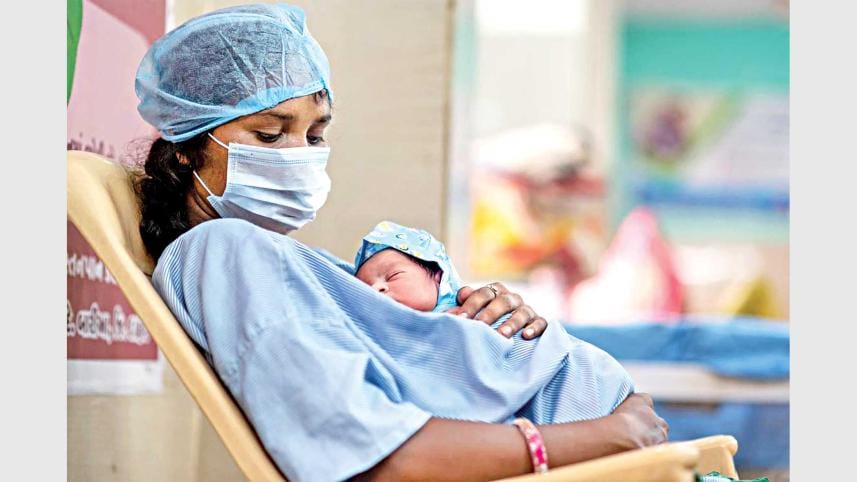Vaccinating a mother against SARS-CoV-2 means vaccinating the newborn!

Breastfed infants are better protected against different infectious diseases, such as gut infection (gastroenteritis), ear infection, urinary infection, sepsis (blood infection) as well as respiratory infections with a reduced frequency, duration and risk of hospitalisation than formula-fed infants. Moreover, such protection has been proved to be continued even beyond the cessation of breastfeeding. The transfer of immunity molecules through breast milk is crucial in such protection against infections.
Breast milk includes many bioactive factors, such as immunoglobulins (IgA, IgM, IgG) which promote the infant's developing immunocompetence. Immunoglobulins are the most studied immunoprotected components in breast milk. IgA is considered dominant in protecting the infant's mucosal surfaces, IgM immediately recognises pathogens and stimulates innate immunologic activities, and IgG appears to be involved in immune surveillance in the intestinal lumen by binding to antigens phagocytising them and plays a role in developing adaptive immune responses. IgG is also able to prevent infection at the intestinal level.
At the beginning of the COVID-19 pandemic, scientists were in doubt regarding the safety of breastfeeding by the mothers suffering from Covid-19 and vaccinating the lactating mothers. From the beginning of vaccination against SARS-CoV-2, scientists have been trying to evaluate whether the vaccination against SARS-CoV-2 leads to antibody excretion into breast milk to the infant.
A recent study has explored an adequate number of antibodies against SARS-CoV-2 in the serum, and milk samples of SARS-CoV-2 vaccinated mothers. Another study also describes the presence of specific SARS-CoV-2 antibodies in the breast milk of mothers who have already been infected with SARS-CoV-2. Such explorations bring hope for the protection of exclusive and uninterrupted breastfeeding.
Dr Abdullahel Amaan is a Resident at the Department of Neonatology, Bangabandhu Sheikh Mujib Medical University, Bangladesh.
Email: abdullahelamaan@gmail.com
Dr Khainoor Zahan is a Deputy Director at the Bangladesh National Nutrition Council, Bangladesh.
Email: khainoorzahan@gmail.com



 For all latest news, follow The Daily Star's Google News channel.
For all latest news, follow The Daily Star's Google News channel.
Comments